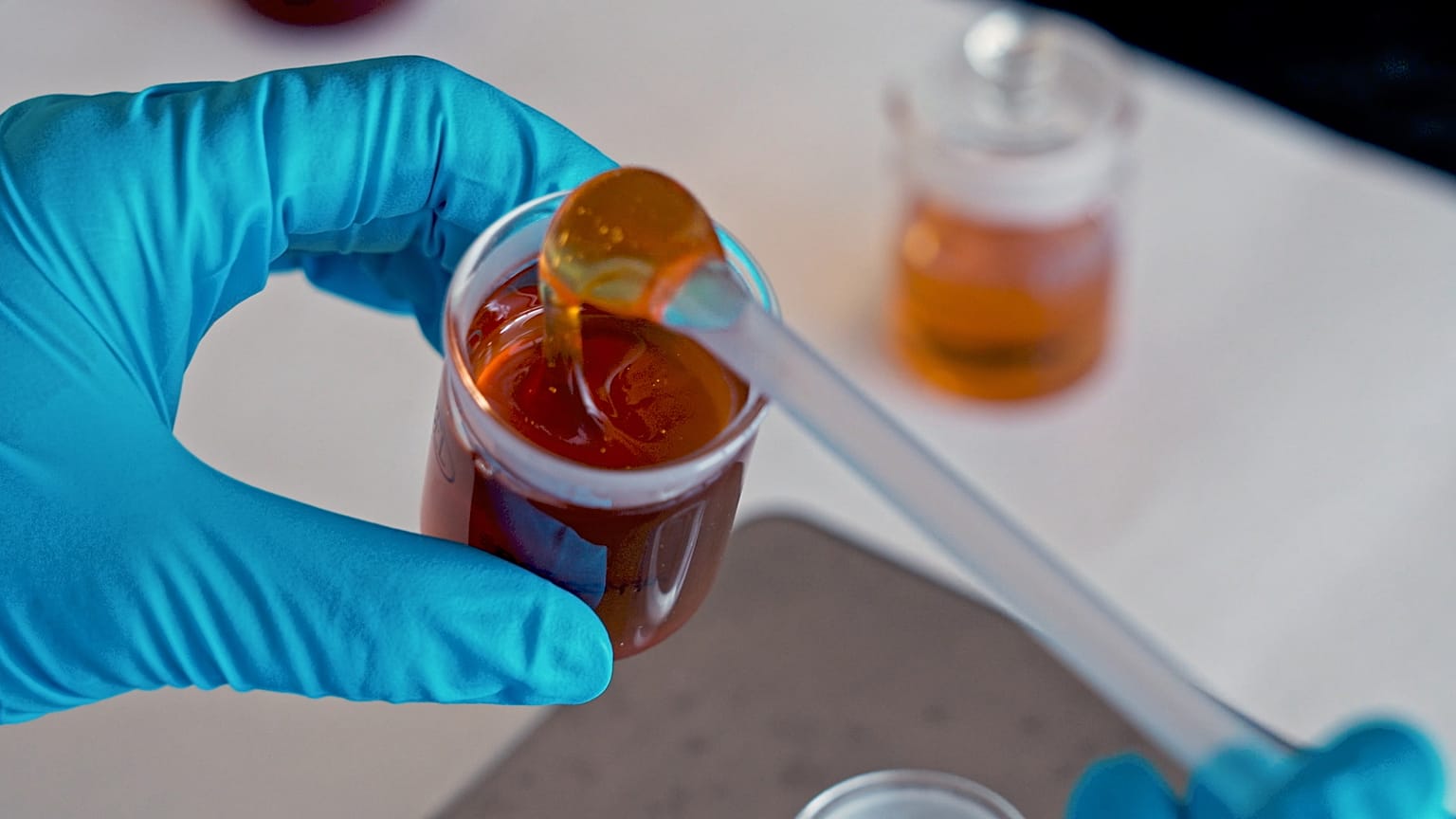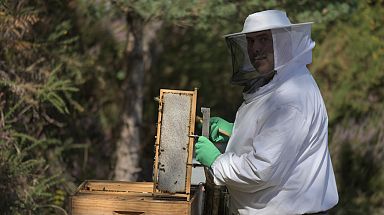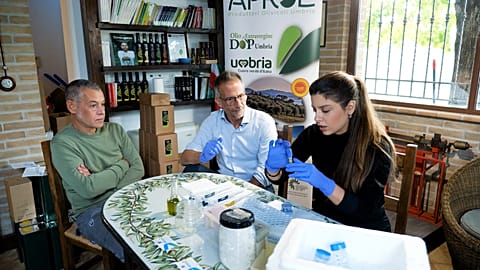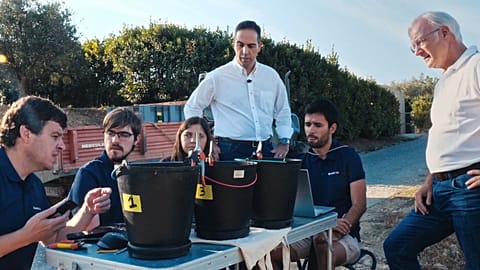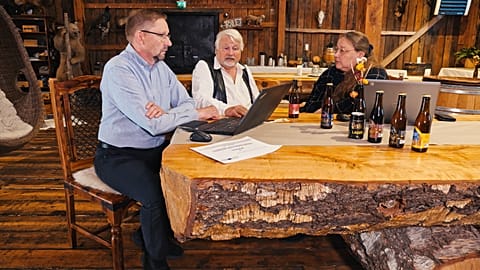Europe’s top food safety experts are joining forces to crack down on fraud. Euronews follows them in this special series, The Food Detectives. In Episode 4, we meet the team fighting fake honey in Spain.
Honey can only be made by bees. However, what’s labelled as honey in our supermarkets isn’t always pure. It could be mixed with other sugars such as corn syrup or rice syrup. While fake honey is not necessarily harmful to our health, it is a threat to beekeepers’ livelihoods.
“It makes us feel bad, as beekeepers who love our job, because this kind of honey creates unfair competition in the market, as it reaches very low prices that traditional beekeeping cannot compete with,” says food detective Julio Fernández López, beekeeper and president of the Protected Geographical Indication (IGP) Asturian honey
The problem is widespread. One study by the Joint Research Centre, the European Commission’s science and knowledge service, found that 46% of the samples of honey imported into the EU had been mixed with other sugars. In Spain, this percentage rose to 51%.
The Food Detectives are working on a portable infrared camera that could help spot fake honey directly on the beekeeper’s property. Food detective Armando Menéndez Estrada, who leads the pilot project as part of the EU’s Watson project, explains that this innovation would be very helpful for the authorities in charge of quality control, as they would avoid lengthy and expensive procedures in their labs.
“With this device, the person performing the quality controls collects honey samples on site, prepares them on a sample holder very quickly and easily, and then places them on the sensor. Within a few seconds, they will find out whether the honey is adulterated or pure,” he explains.
The camera will also determine which plant nectar the bees consumed, which has an impact on the price of the honey jar. According to Armando Menéndez, it’s an important tool against mislabelling and it can also help producers determine in a shorter time what type of label they can put on their product.
Replicable technology
To understand better how to identify adulterated honey, the team built a database of both hive-made honey and sugary syrups that imitate the bees’ work. Their research is centred on IGP Asturian honey. Because there are still no cases of fake IGP Asturian honeys, food detective Noemí Quintanal had to fake it herself, mixing them with different kinds of syrups. She has now created a database of approximately 110 samples of pure honey and 120 samples of adulterated honey.
This database feeds the algorithm behind the Watson solution so that it can recognise the different samples and thus detect fake honeys labelled as IGP Asturian honey and identify their botanical origin. Once approved, this tool will mostly benefit local authorities who can use it to verify the quality of honey sold in the region.
However, Noemí Quintanal explains that it can also be used further afield: “The device developed as part of the Watson project could be used in other types of honey, adding more data and measuring and analysing the new samples you want to analyse later with this device.”
Euronews creates The Food Detectives
The Food Detectives series follows the research within the EU’s Watson project, funded by the Horizon Europe programme. Euronews is a member of the Watson project consortium, alongside 46 other EU and non-EU partners from industry and academia. Watson aims to give food safety authorities better tools to detect and prevent food fraud.
Join us for The Food Detectives LIVE EVENT on the Euronews YouTube channel on Thursday 27th November at 5:30pm direct from Brussels.















